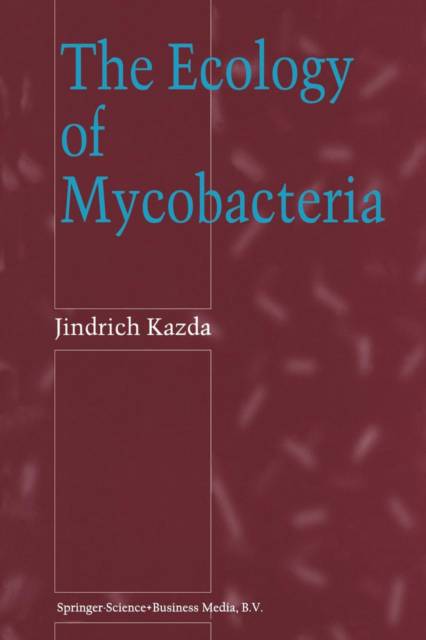
Bedankt voor het vertrouwen het afgelopen jaar! Om jou te bedanken bieden we GRATIS verzending (in België) aan op alles gedurende de hele maand januari.
- Afhalen na 1 uur in een winkel met voorraad
- In januari gratis thuislevering in België
- Ruim aanbod met 7 miljoen producten
Bedankt voor het vertrouwen het afgelopen jaar! Om jou te bedanken bieden we GRATIS verzending (in België) aan op alles gedurende de hele maand januari.
- Afhalen na 1 uur in een winkel met voorraad
- In januari gratis thuislevering in België
- Ruim aanbod met 7 miljoen producten
Zoeken
Omschrijving
Detailed information dealing with the ecology of mycobacteria is derived from a variety of different scientific fields such as botany, biochemistry, genetics, immunology, microbiology and epidemiology. This is the first attempt to evaluate this information from an ecological point of view and to develop a strategy for the prevention of tuberculosis and other mycobacterioses based on the ecological behavior of mycobacteria, especially the potentially pathogenic species capable of either growth in the environment or provoking disease. Regarding the interests of the developing countries, special attention is paid to the ecology of Mycobacterium leprae and to the supporting effect of accompanying mycobacteria in its pathogenicity.
On a more positive side, environmental mycobacteria play an important role in the ecology of moorland dragonflies.
Such a book is needed for specialists working in the field of mycobacterial research, clinical laboratories, the public health service, food hygiene, the water industry and in general ecology.
On a more positive side, environmental mycobacteria play an important role in the ecology of moorland dragonflies.
Such a book is needed for specialists working in the field of mycobacterial research, clinical laboratories, the public health service, food hygiene, the water industry and in general ecology.
Alleen bij Standaard Boekhandel
+ 153 punten op je klantenkaart van Standaard Boekhandel
Beoordelingen
We publiceren alleen reviews die voldoen aan de voorwaarden voor reviews. Bekijk onze voorwaarden voor reviews.










